Posted on 6/19/2015
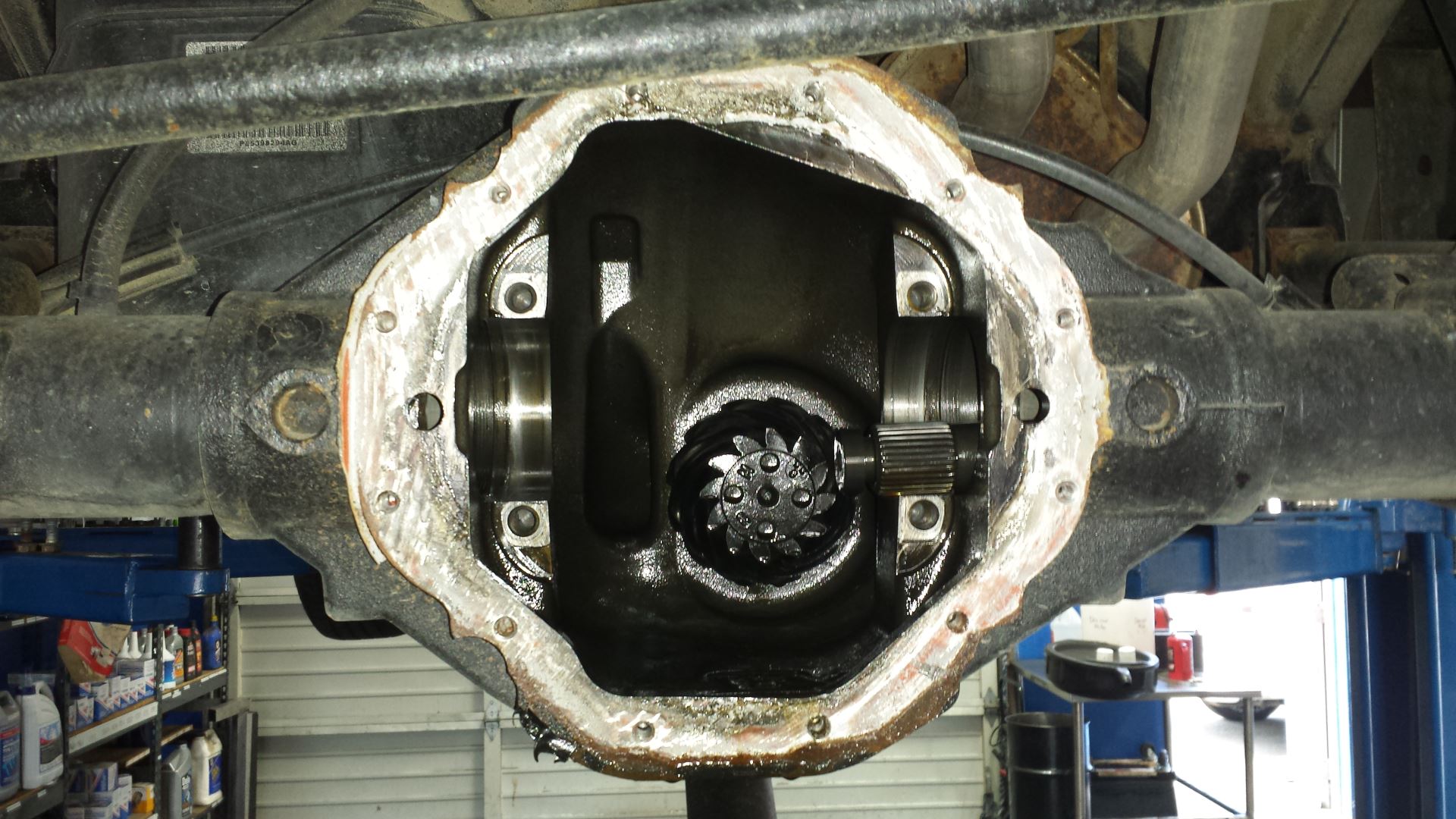
Car of the week blog: Week 6: 06/19/15 Bud’s is here to report in for week 6 of Car of the Week, a 2010 Dodge Ram 1500 SLT! This Dodge pick-up came in because of a noise. The customer stated that the noise was coming from the rear differential when they were driving at 35mph. It had been previously diagnosed by a major chain but the customer felt more comfortable having us repair it. Upon inspection by our tech, the truck is in great overall health except for the rear diff! The truck is not brand new so it is rare to only have one recommended service on the inspection sheet filled out by the tech. When they do the complimentary 29 point inspection they test as many areas for wear etc. They rate each item with Green, Yellow or Red for Good, Okay and Needs Repair Immediately. This truck had all green makes besides the rear diff. During inspection our mechanic found that the pinion bearing had failed. This is usually the result of high mileage or improper mainte ... read more
Posted on 6/12/2015
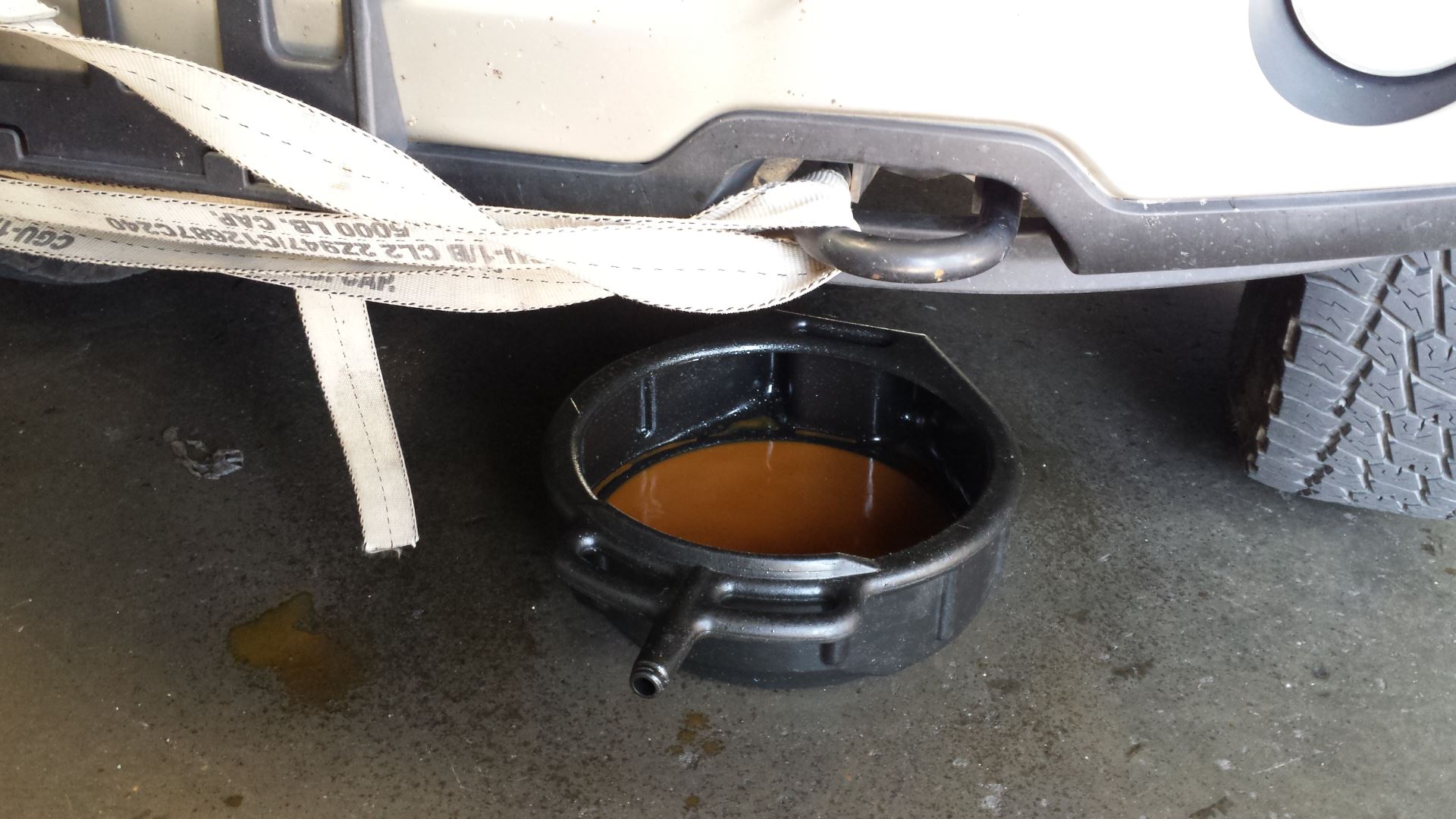
Week 5: 06/12/15 Bud’s is here to report in for week 5 of Car of the Week, a 2007 Ford F-150 Lariat! This truck came in with the complaint of “coolant leaking” as fast as you can put it in and has had a slow leak for at least a few months. We found out that someone else had put a new radiator cap on and it had slowed the leak a bit but not stopped it completely. The customer let us know that the water that was leaking under the truck was rusty as well. Upon inspection of the cooling system, specifically the radiator, our tech (mechanic) determined that the cooling system had been “topped off” or re-filled with water. You see, antifreeze or engine coolant is meant to keep your water system from freezing but it also contains chemicals that aid in the prevention of rust and corrosion. If you just top off the fluid as it is leaking with water you are diluting the coolant so much that is can no longer protect your engine from corrosion. Thi ... read more
Posted on 6/5/2015
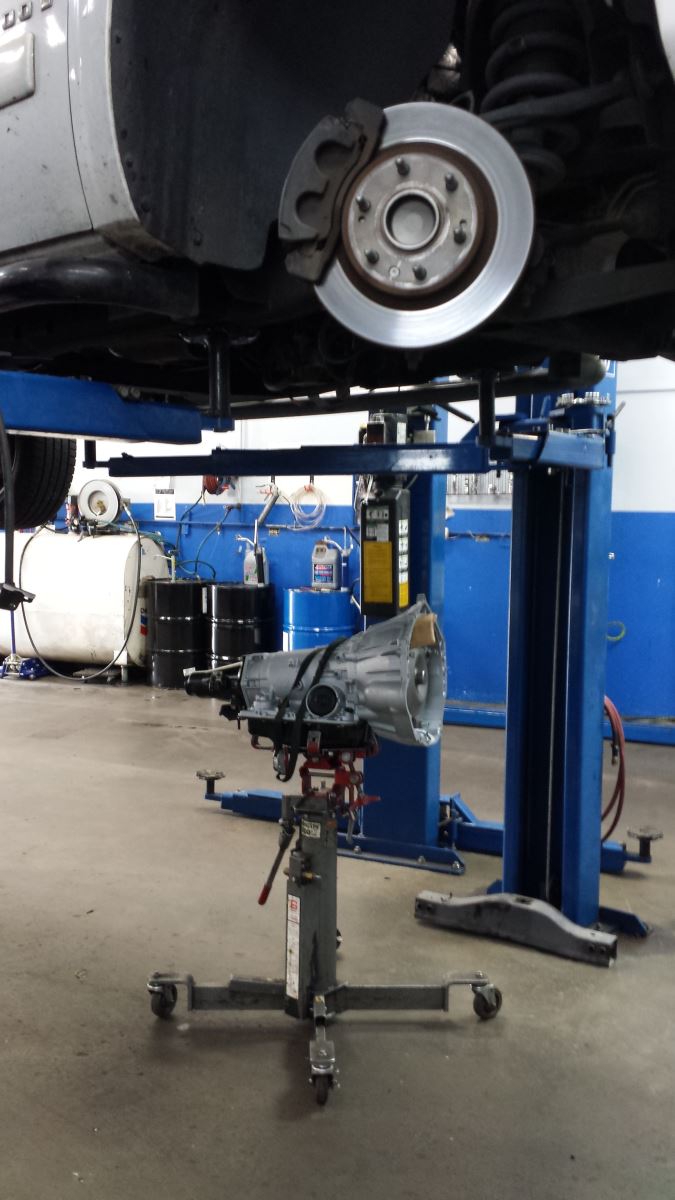
Week 4: 06/05/15 Bud’s is here to report in for week 3 of Car of the Week, a 2008 Chevrolet Silverado 1500 LT! This Chevy came in because it would not go into drive. The owner uses it to tow the family toy trailer and with the nice weather coming up having their truck in working order is completely necessary. Along with the transmission not working properly the customer also told us about a rattle under the truck when going over a bump. It’s had a little bit of recent work but not enough to keep from blowing the tranny with all the traveling and heavy hauling! So, Bud’s is on it! We had the transmission rebuilt (see pictures for new transmission). We are also doing; front brake service, all tire inspection and rotation, power steering and brake fluid flushes (with full fluid exchange). The truck is also getting a new transmission cooler and rear shocks because our tech found that they were leaking while doing our complimentary 29 point inspection ... read more
Posted on 6/1/2015
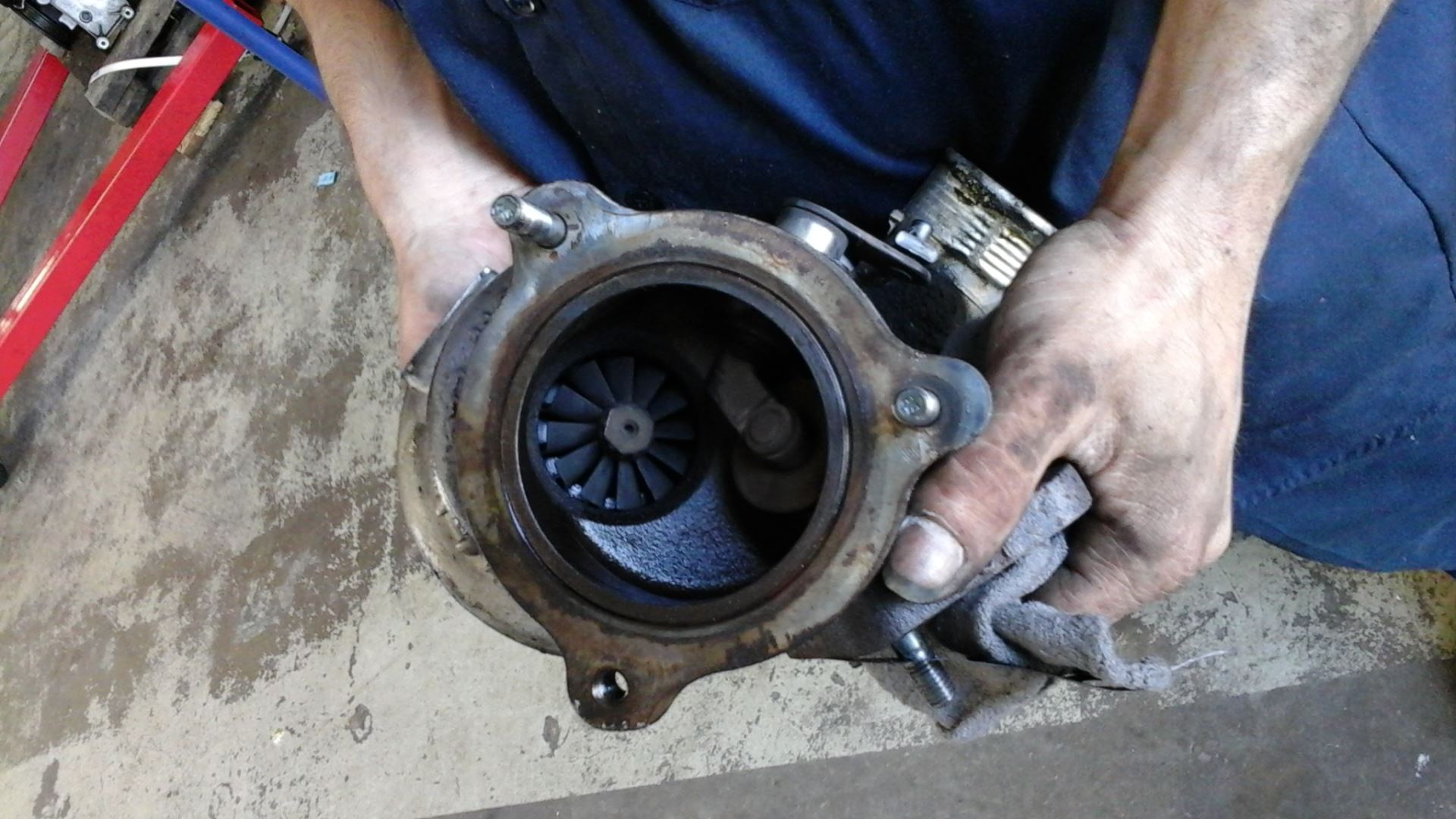
Bud’s is here to report in for week 3 of Car of the Week, a 2004 Volvo XC90! This small SUV came in a bit ago, the initial complaint was “After an oil change at Walmart, vehicle was driven over the pass and started smoking. Makes a whining noise and loses power. Check engine light is also on. Check and advise.” So, the vehicle was brought in for diagnostic (diag) and what our tech found was so sad! The engine was “blown” because of its bad oil. Bud’s uses factory specific oils (unless requested otherwise) to make sure that the vehicles we service are to factory specifications. This vehicle’s, maintenance schedule was either neglected or the oil that was put in the Volvo was not the factory recommended oil, causing the engine to get over heated and damage itself. Our tech recommended that we rebuild the engine. It wasn’t salvageable. The customer, having just purchased the vehicle decided to go ahead with installing ... read more
Posted on 5/22/2015
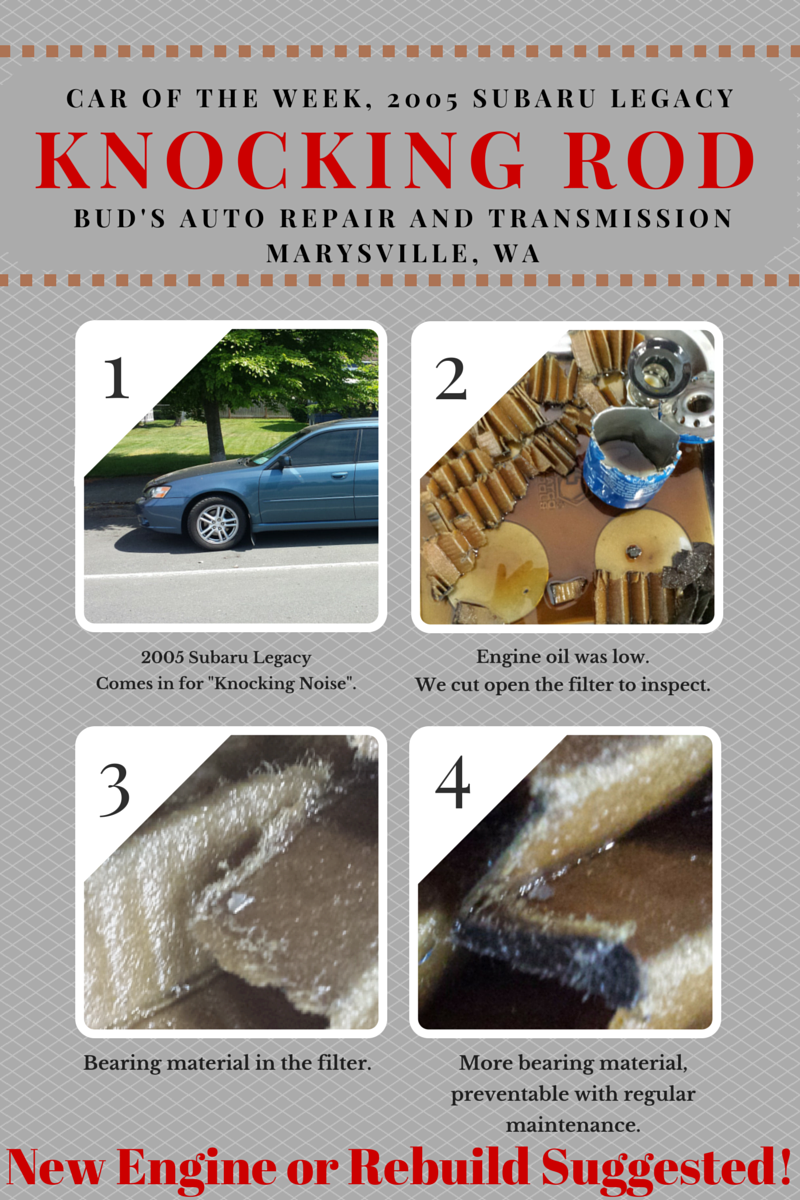
Car of the week blog: Week 2: 5/21/15 Bud’s is here to report in for week 2 of Car of the Week! It is funny how things happen but… his week our featured vehicle is another 2005 Subaru Legacy. The customer came in because of a “knocking sound”. They could tell that there was something wrong with the car but didn’t know what. They may have searched “why is my car knocking” or “what is that knocking sound” on Google before scheduling an appointment, maybe not. Either way, they knew that our techs have the knowledge and tools to figure out the issue. This Subaru Legacy came in for diagnosis because of the noise it was making. Usually when your vehicle is making a noise, there is already something wrong. When our mechanic got to this vehicle for inspection and started it up he could definitely here the knocking sound. He proceeded with the 29 point inspection that every vehicle th ... read more